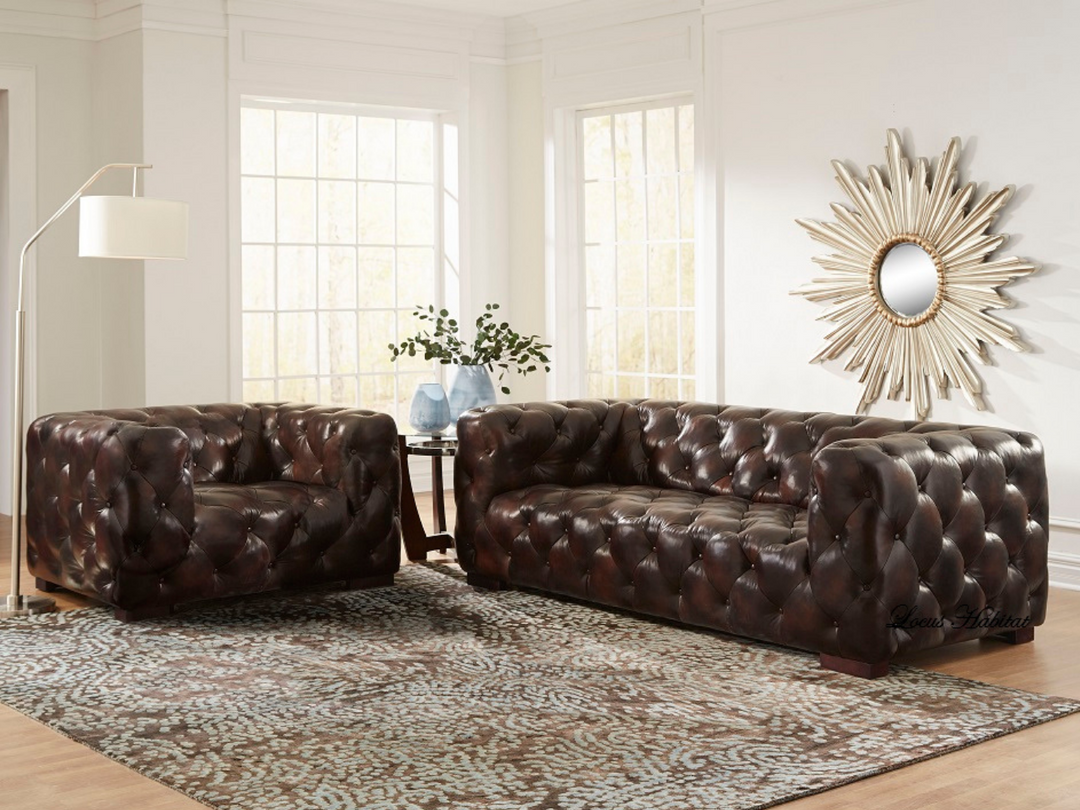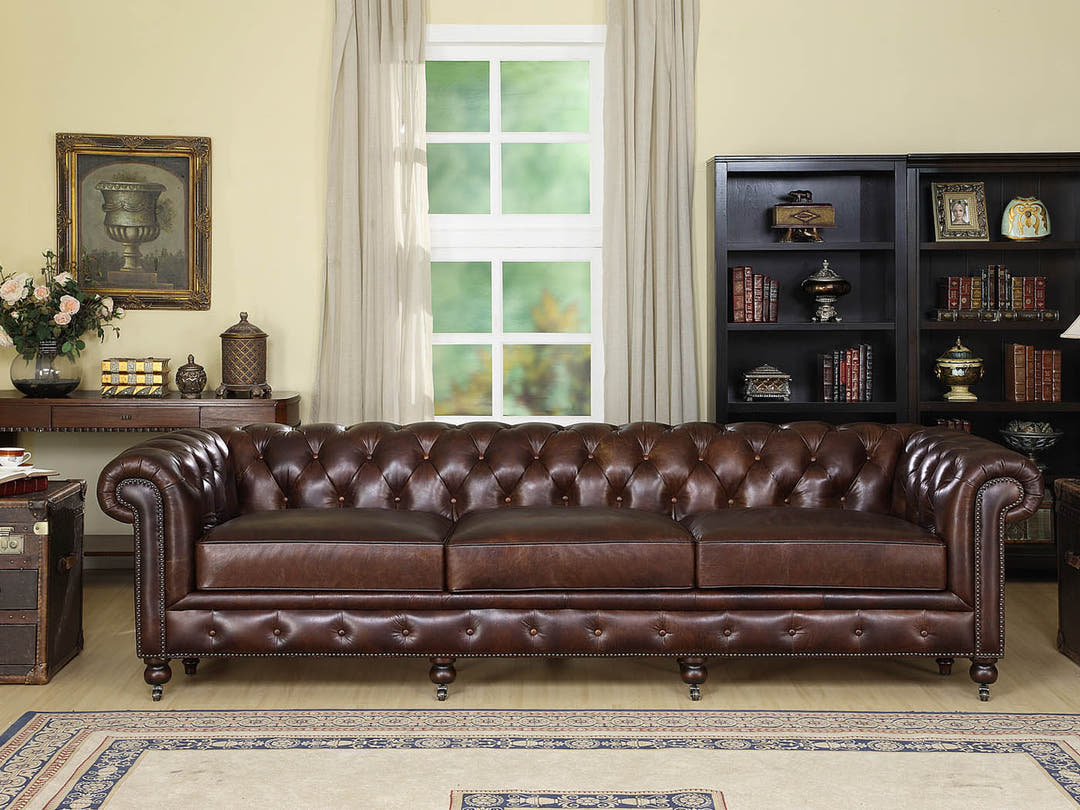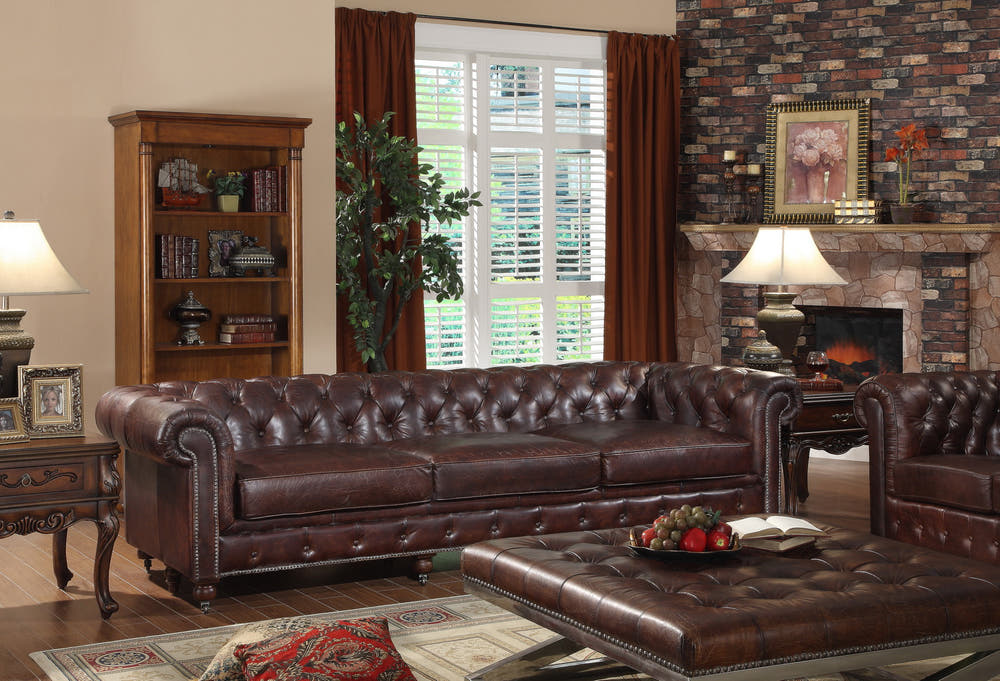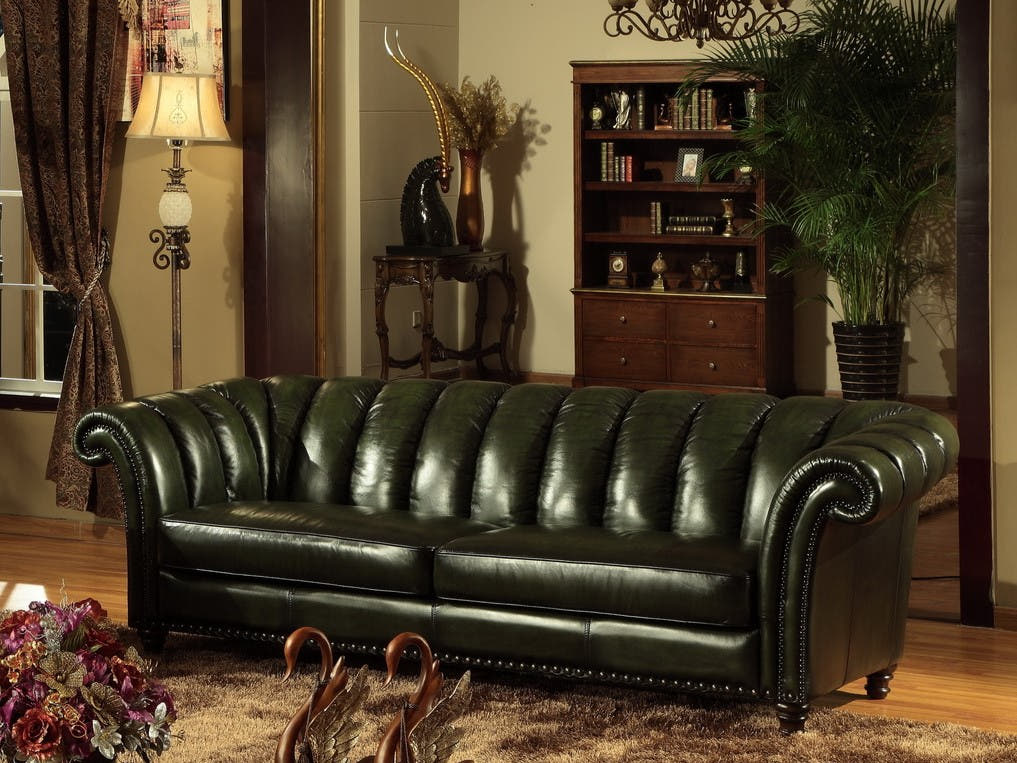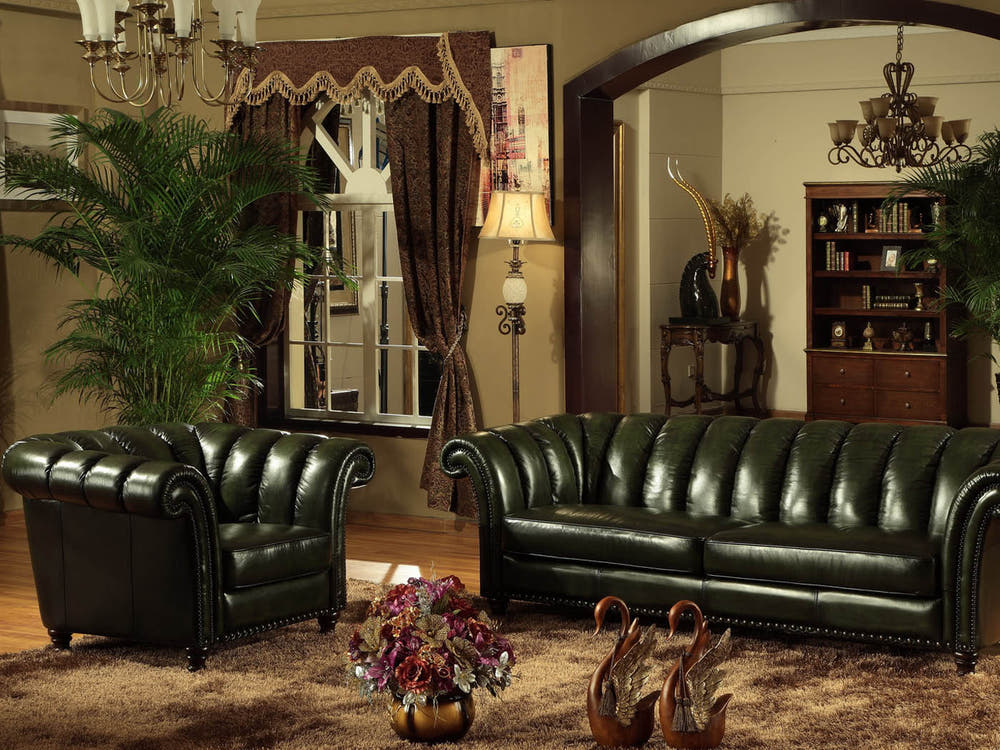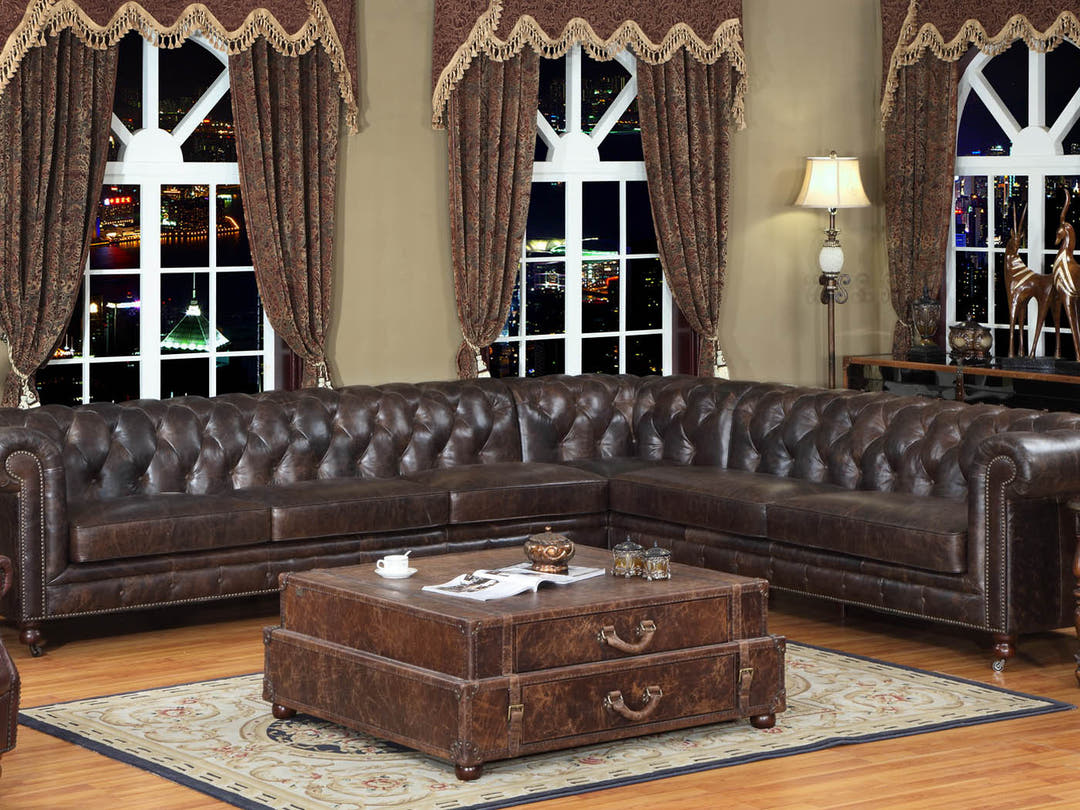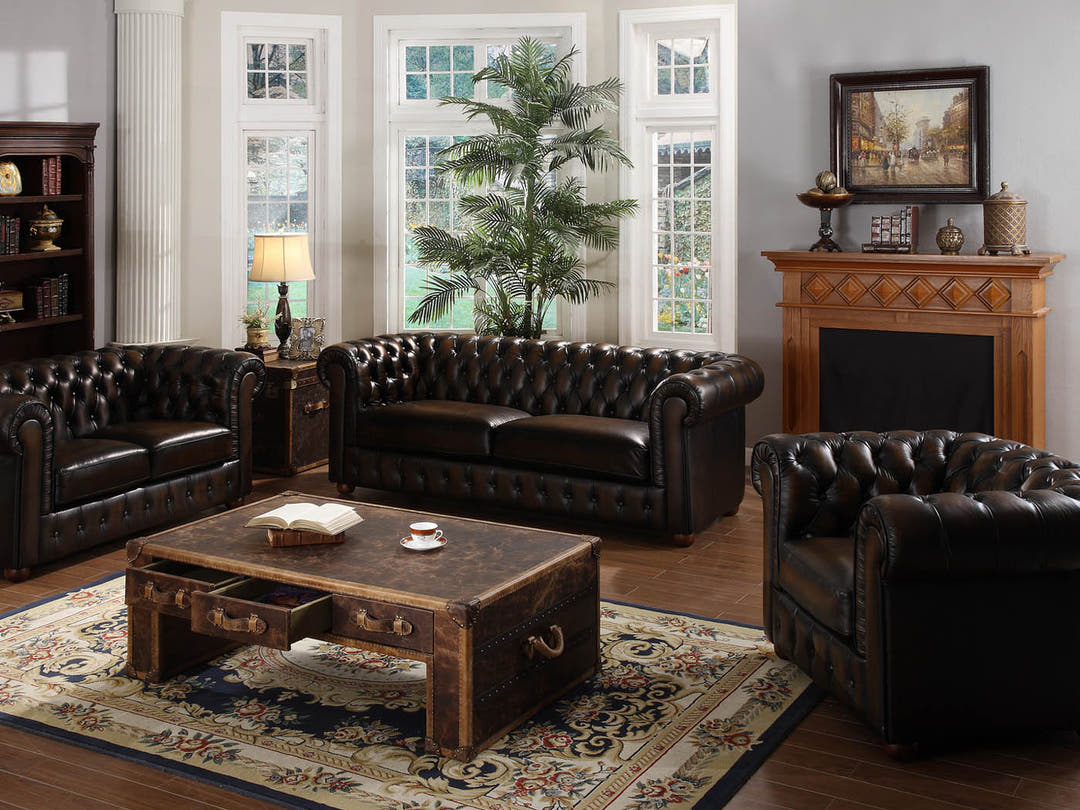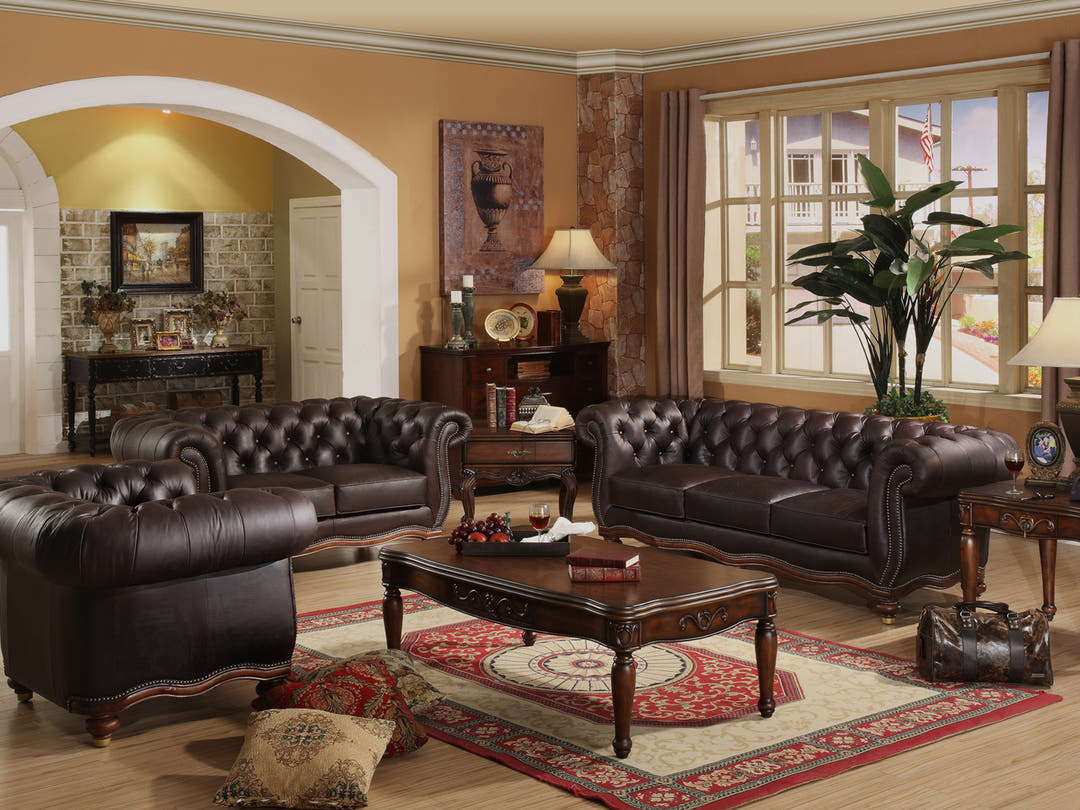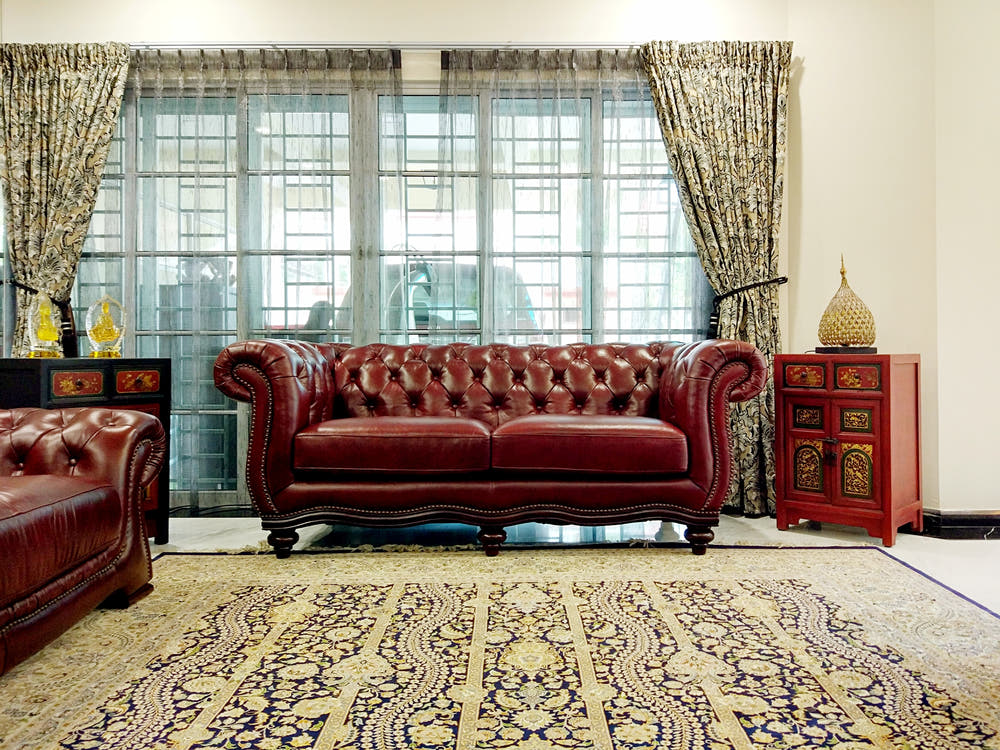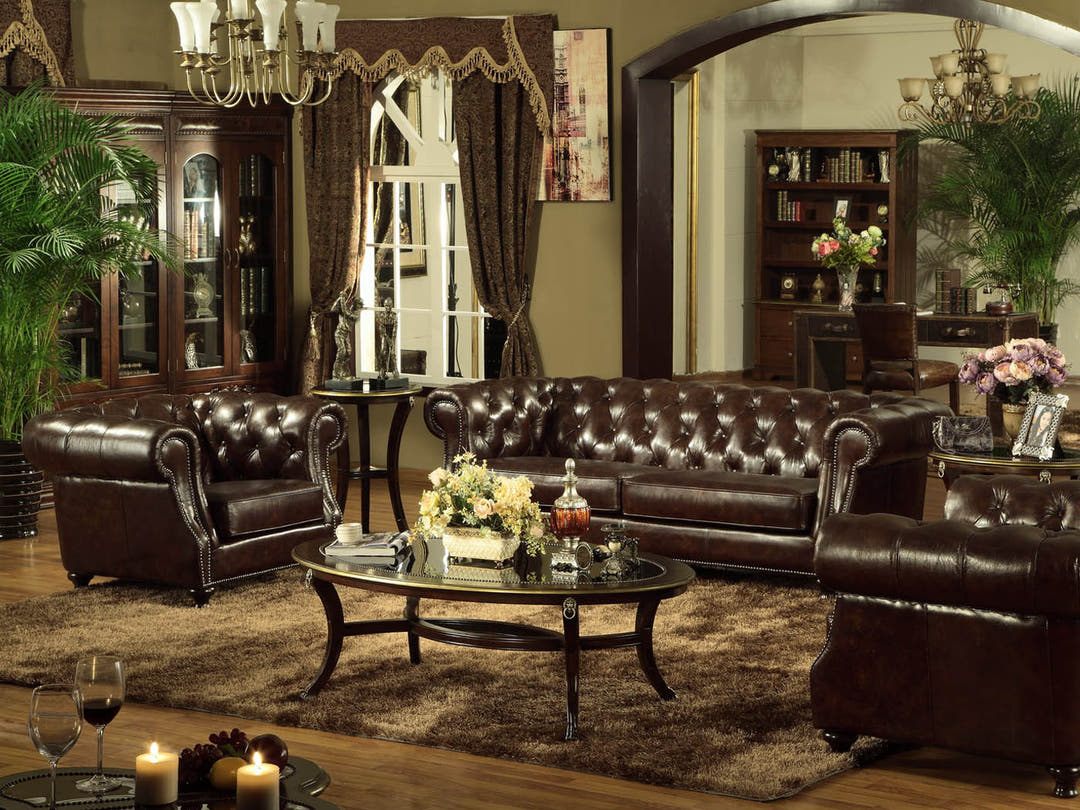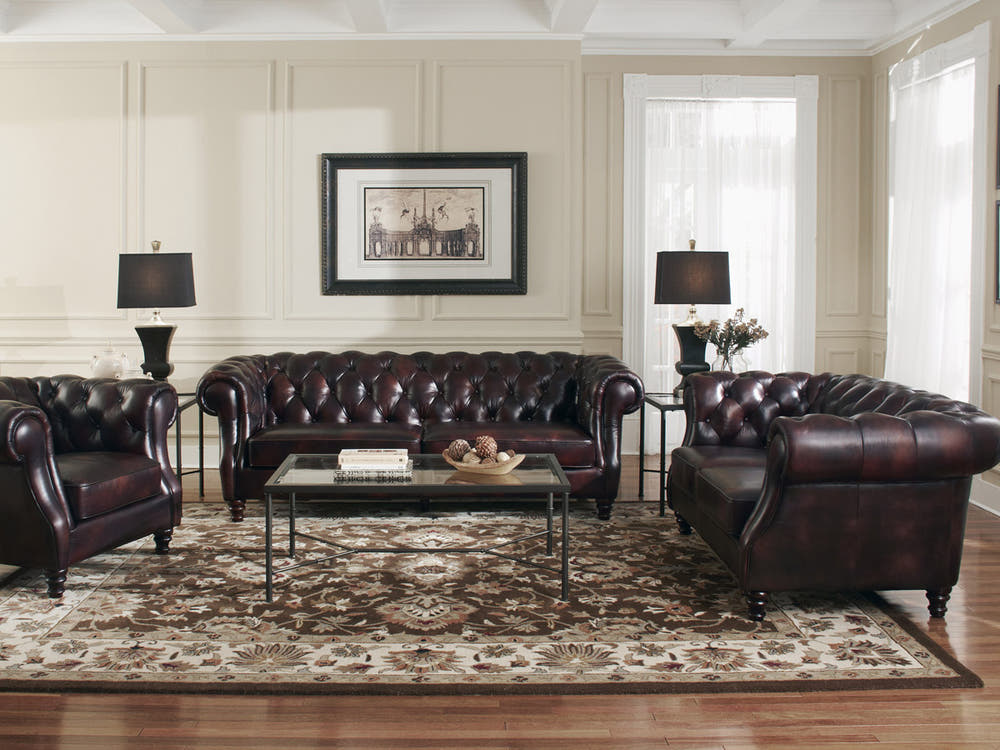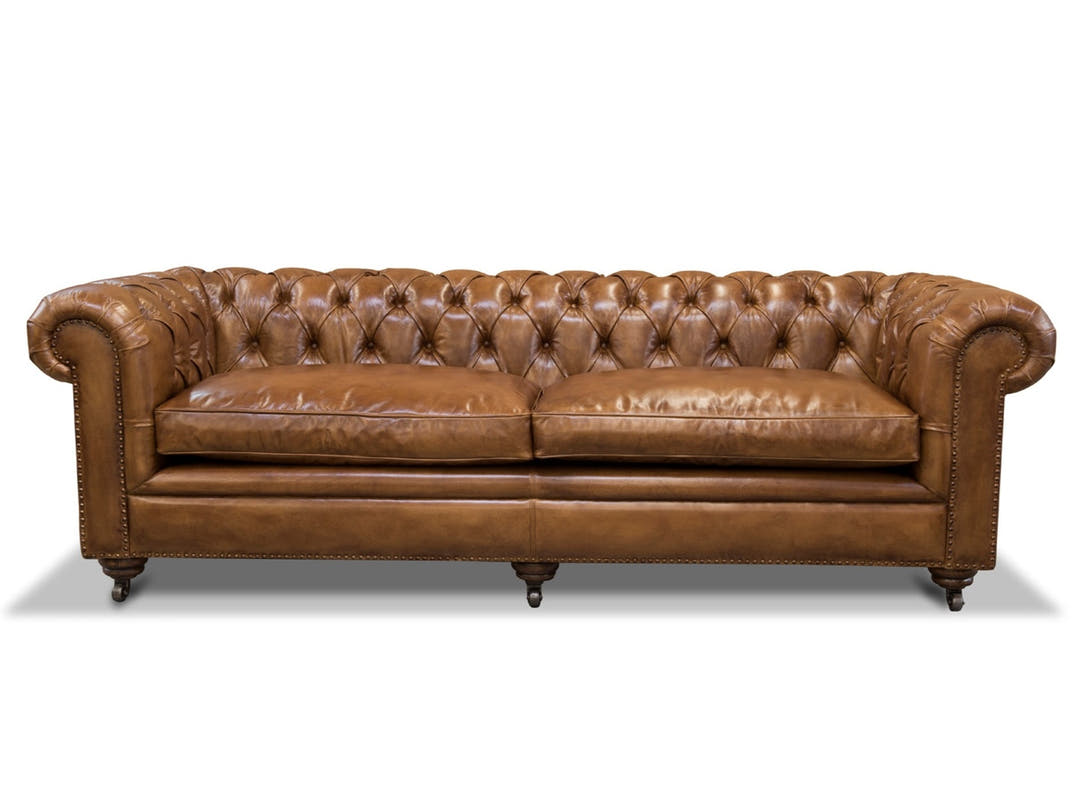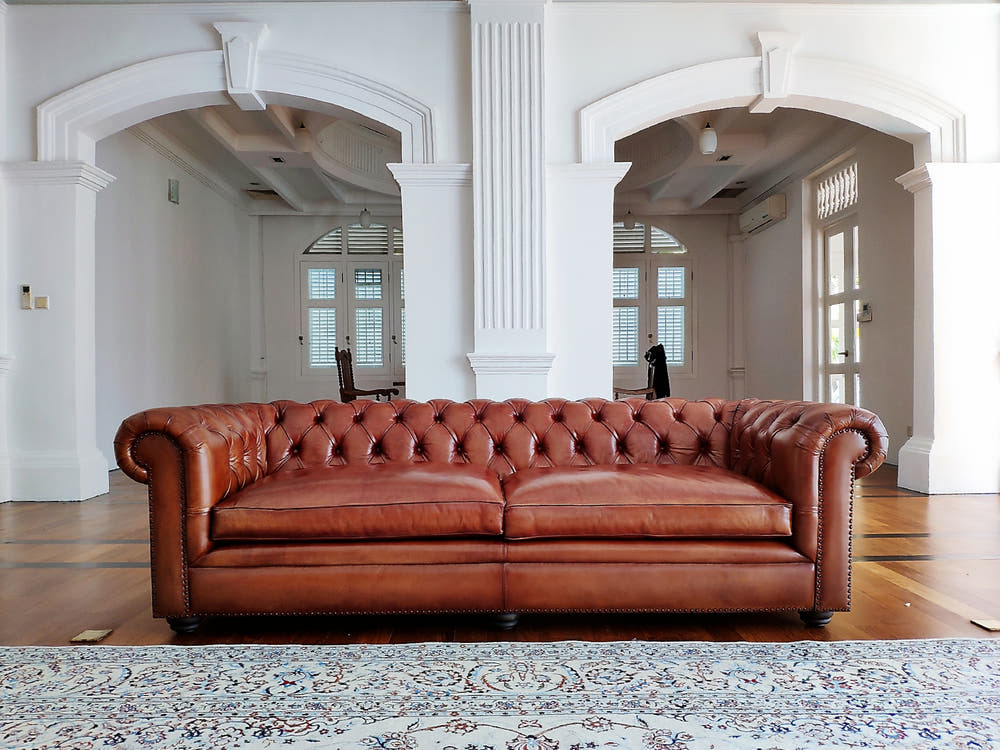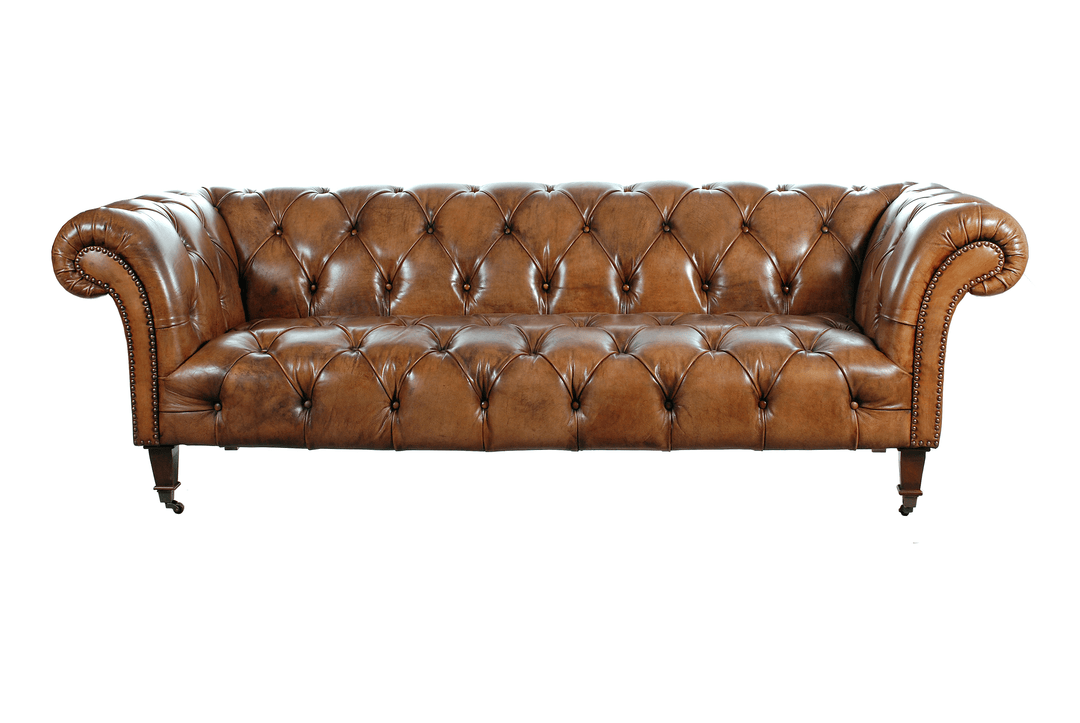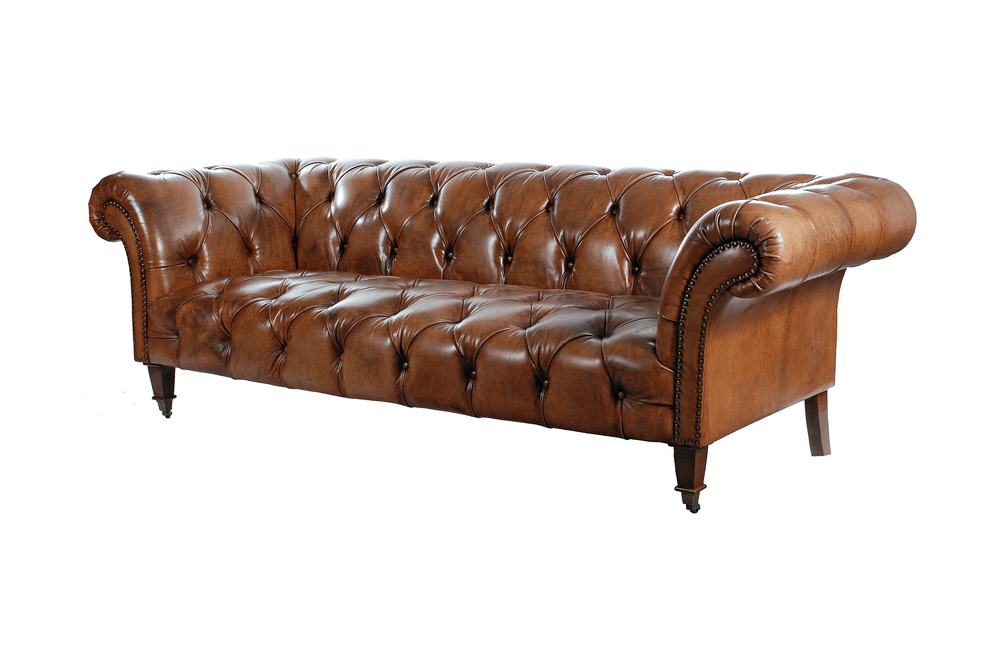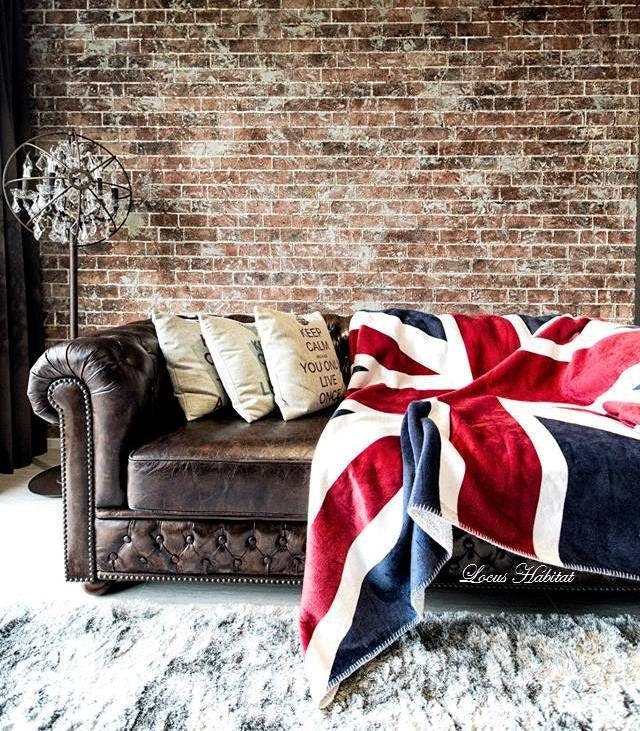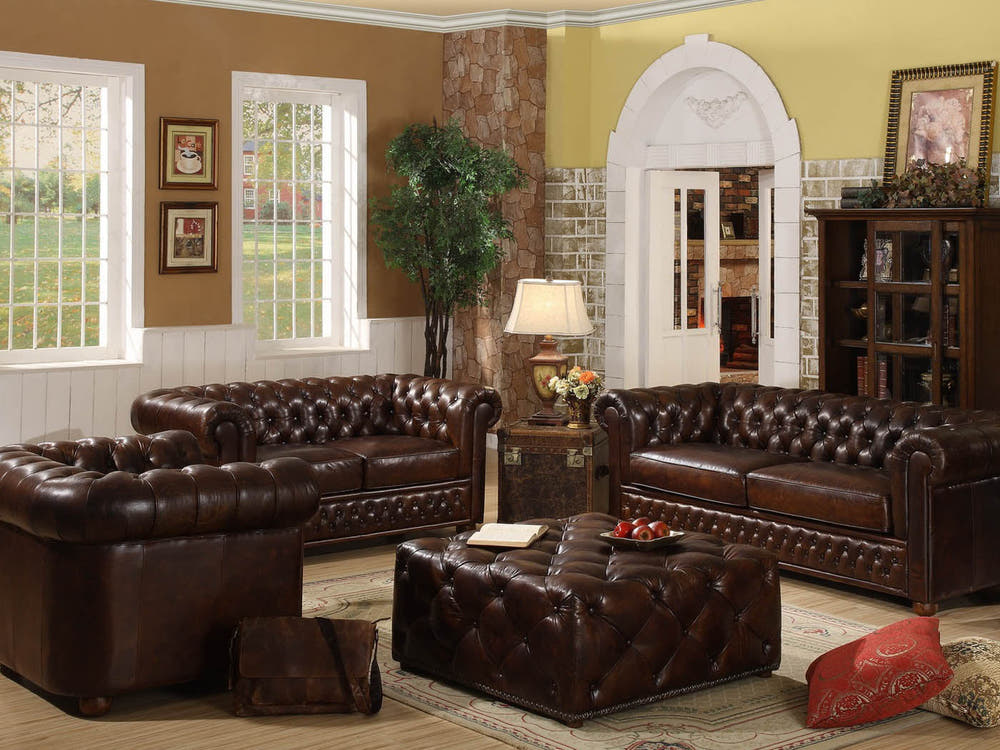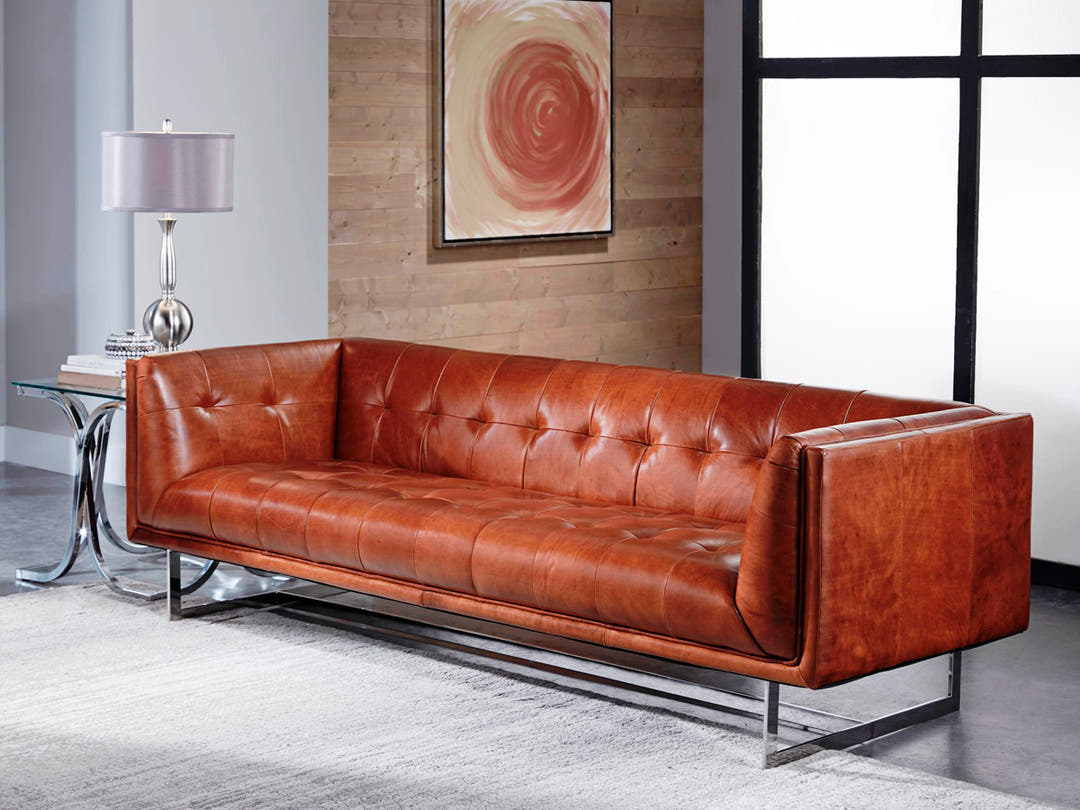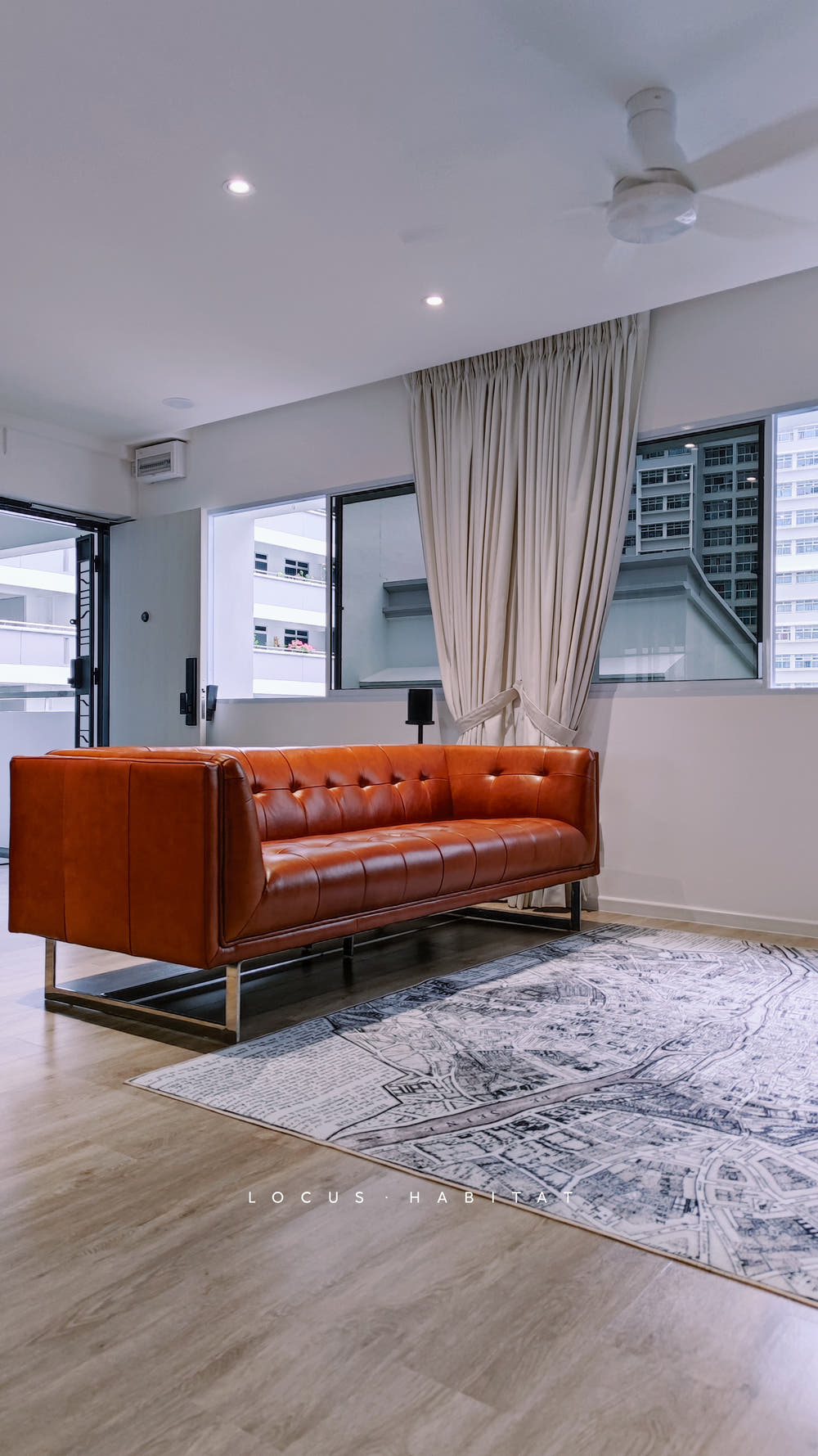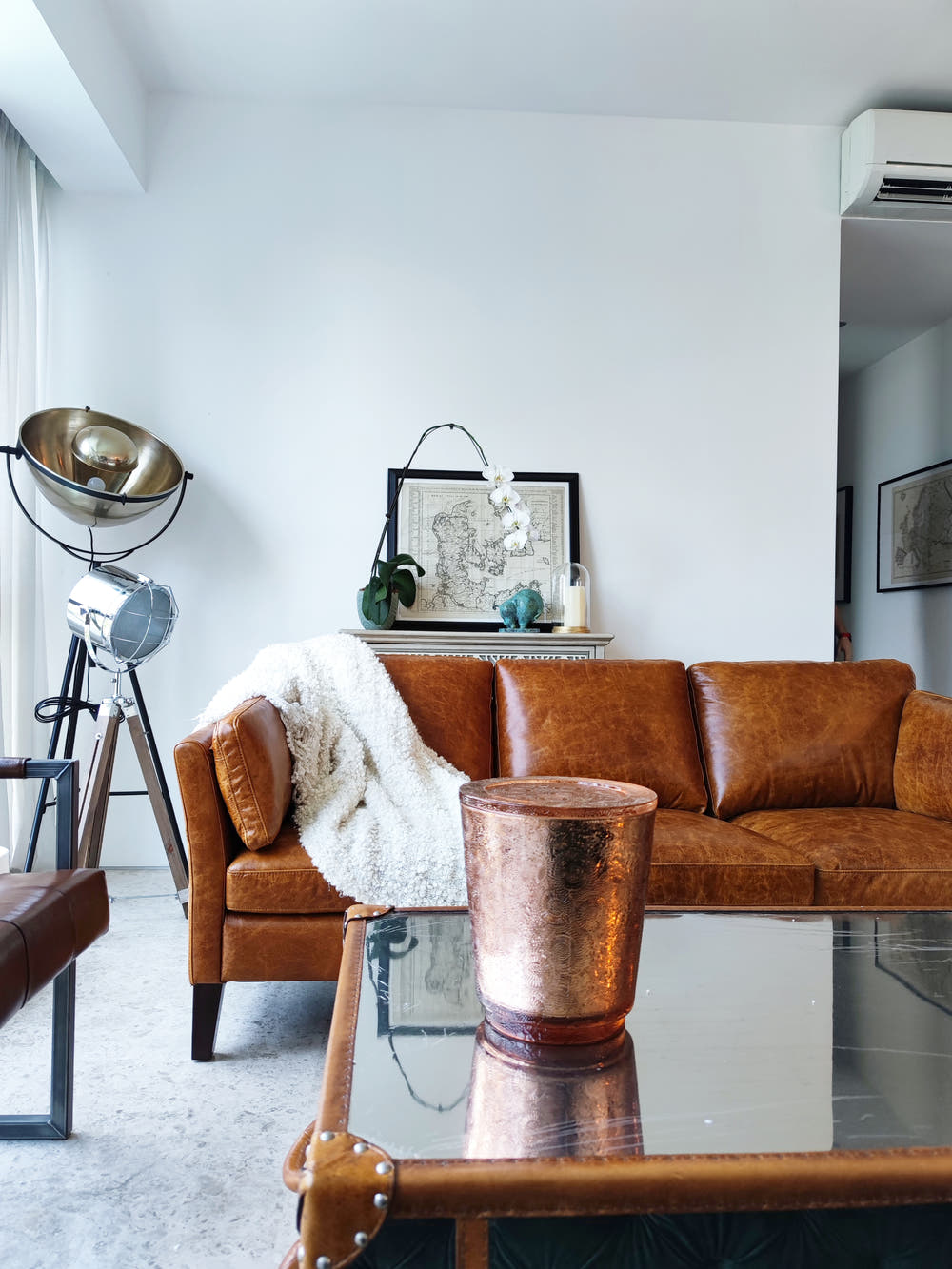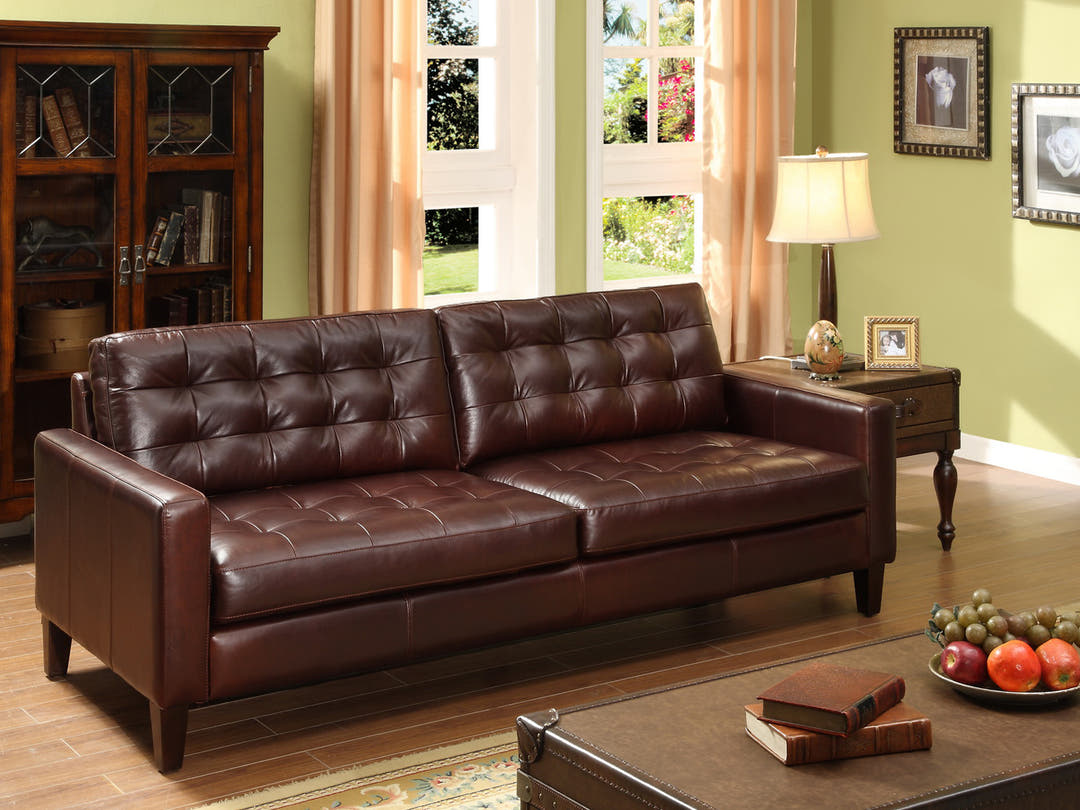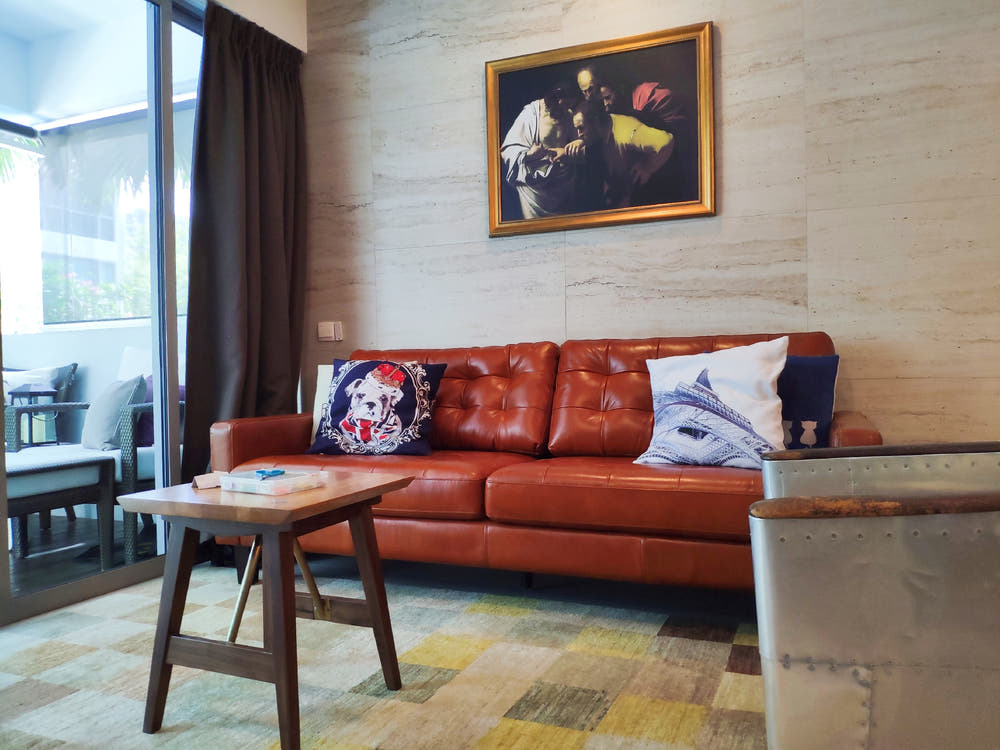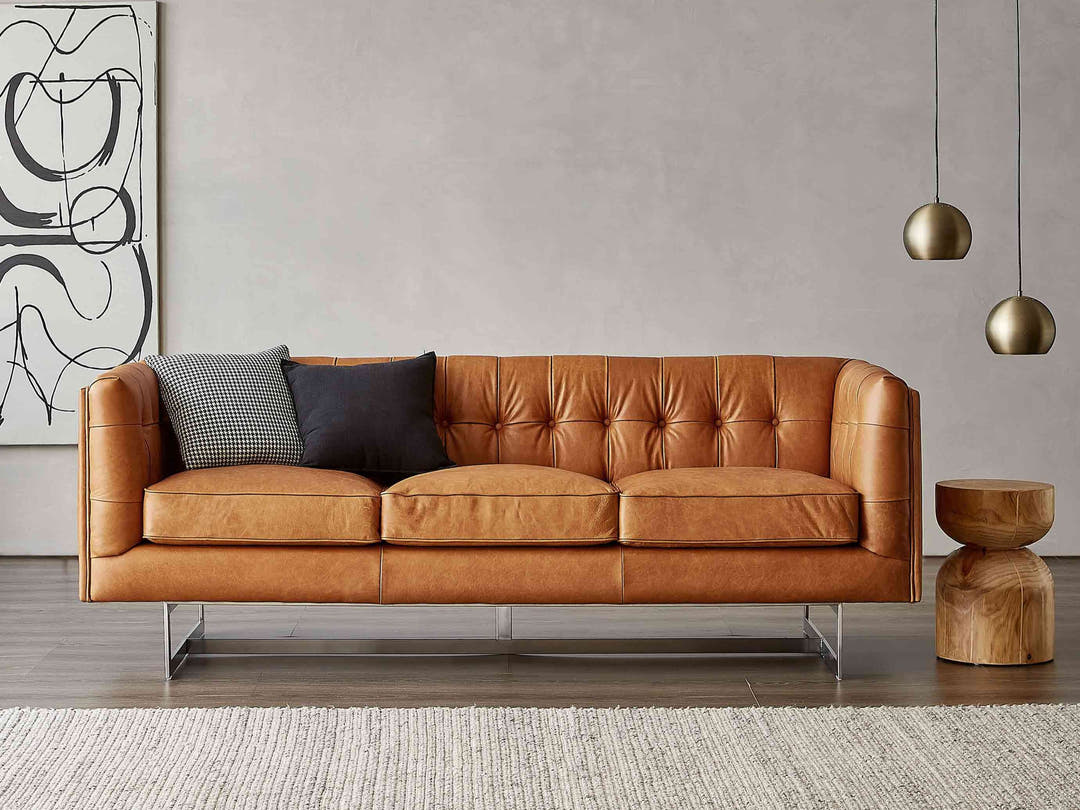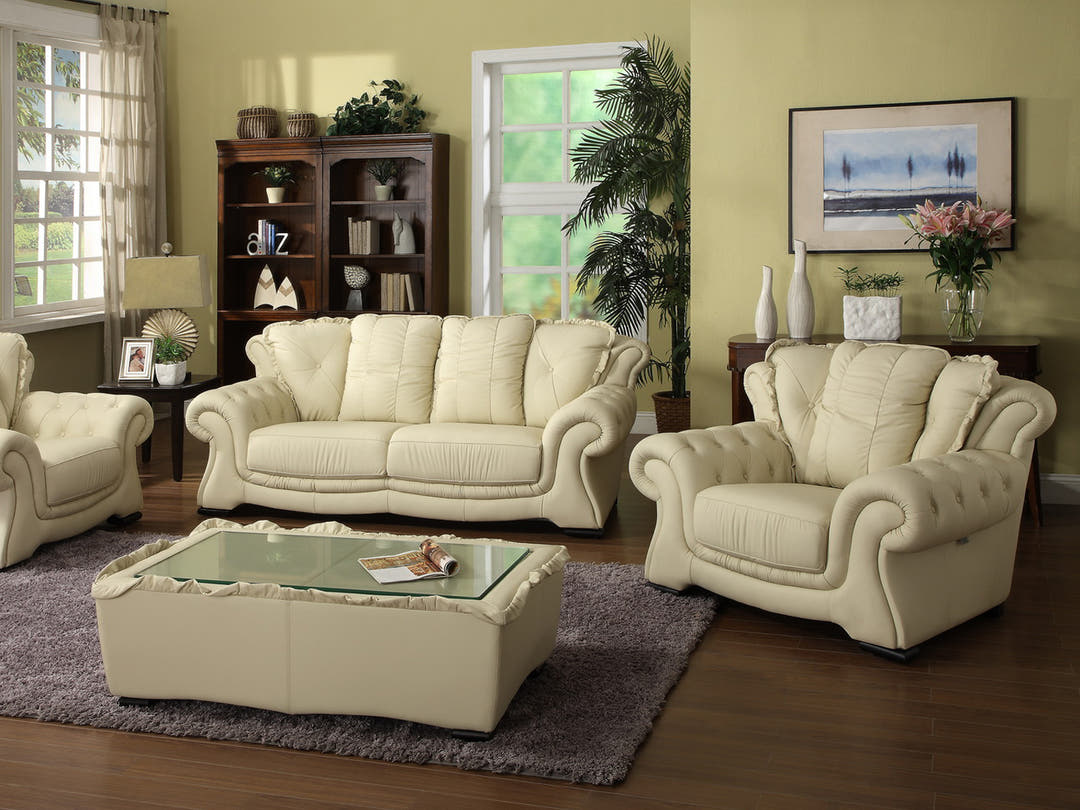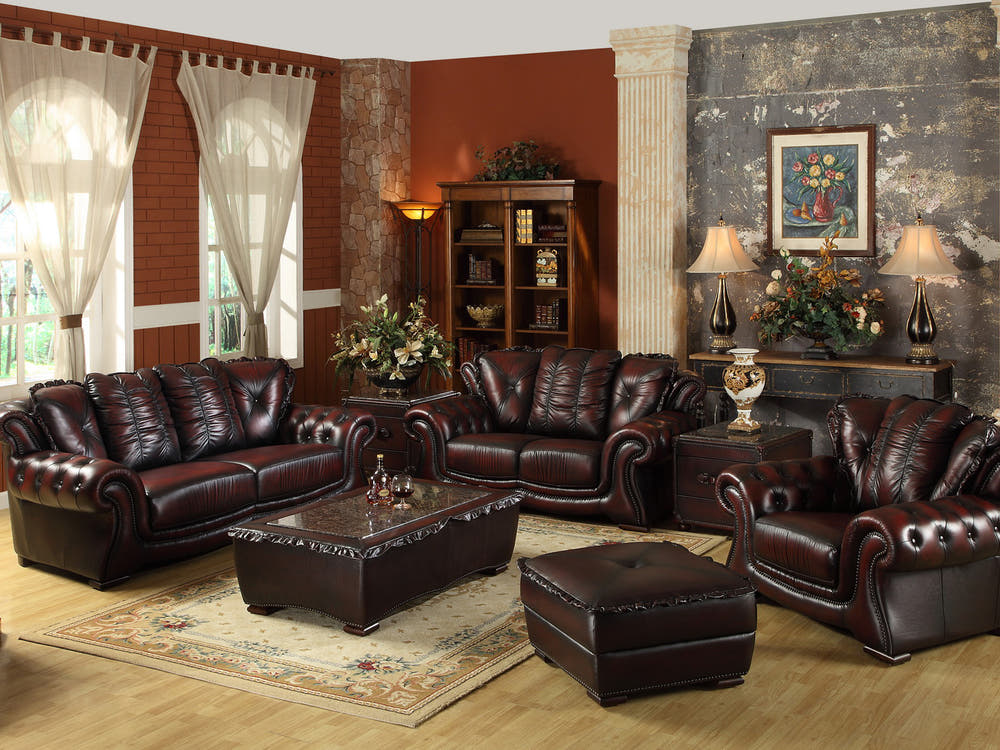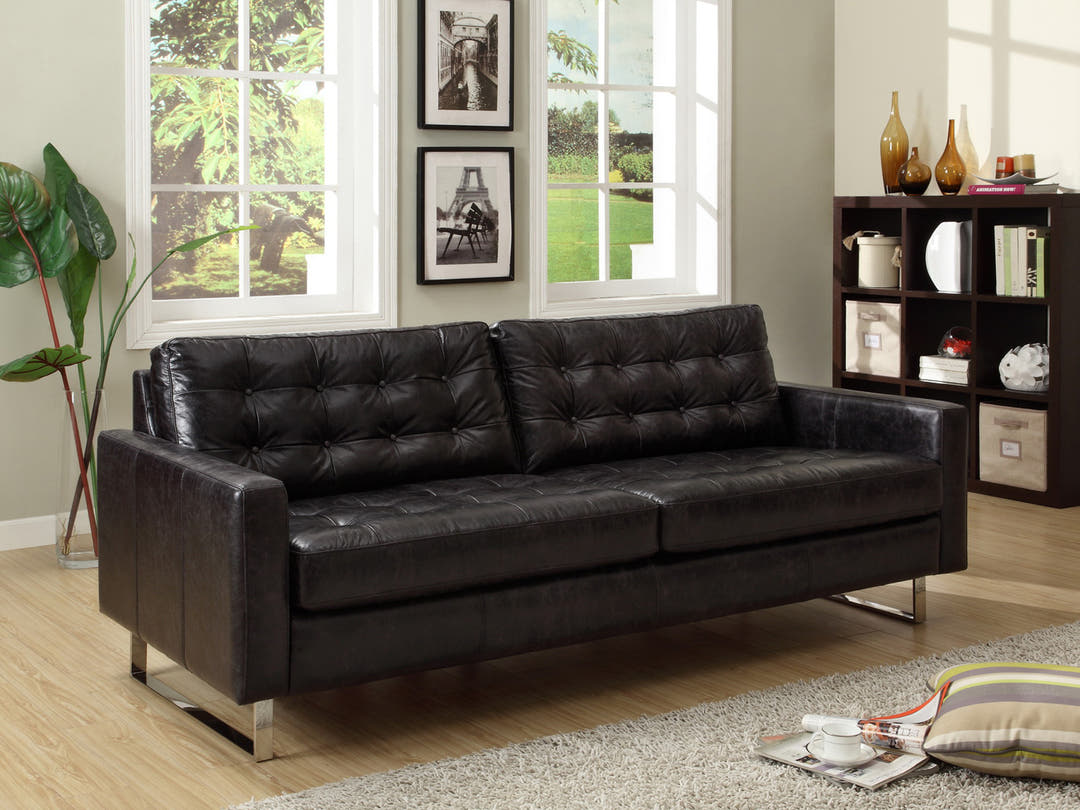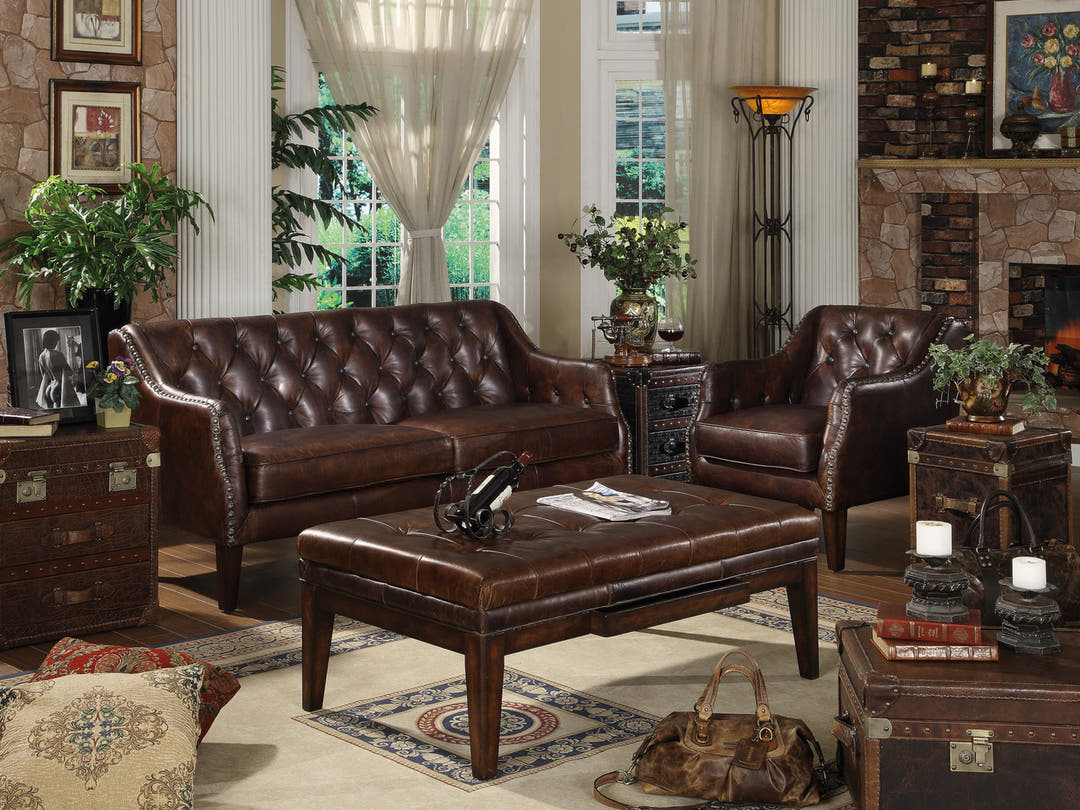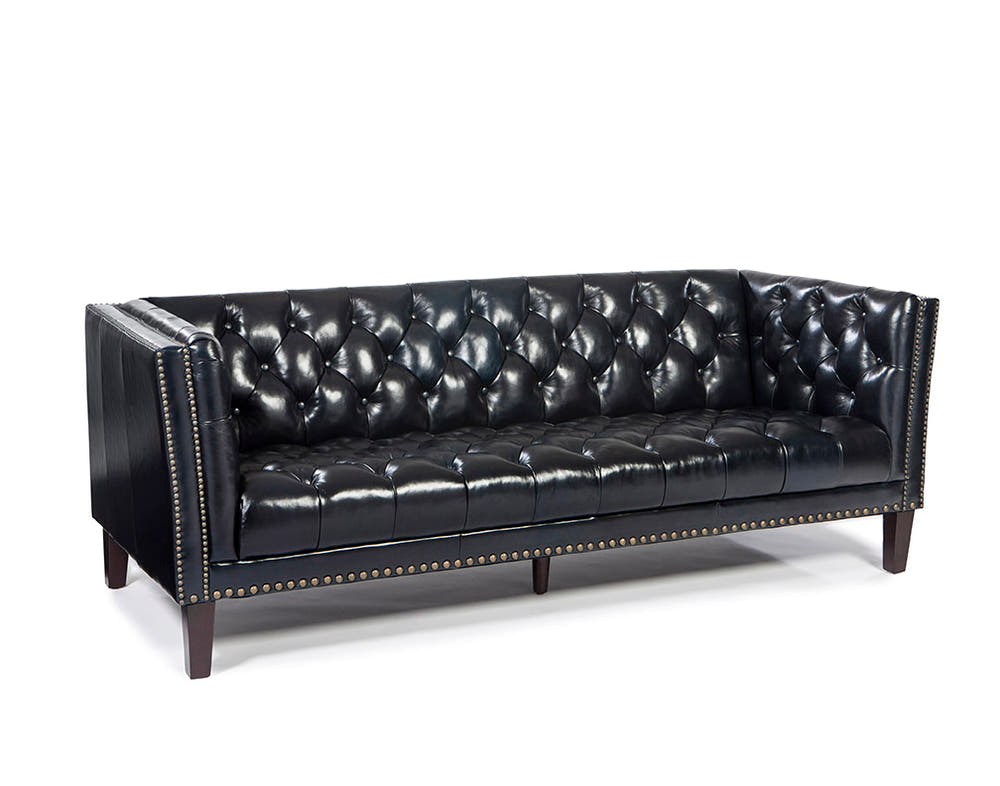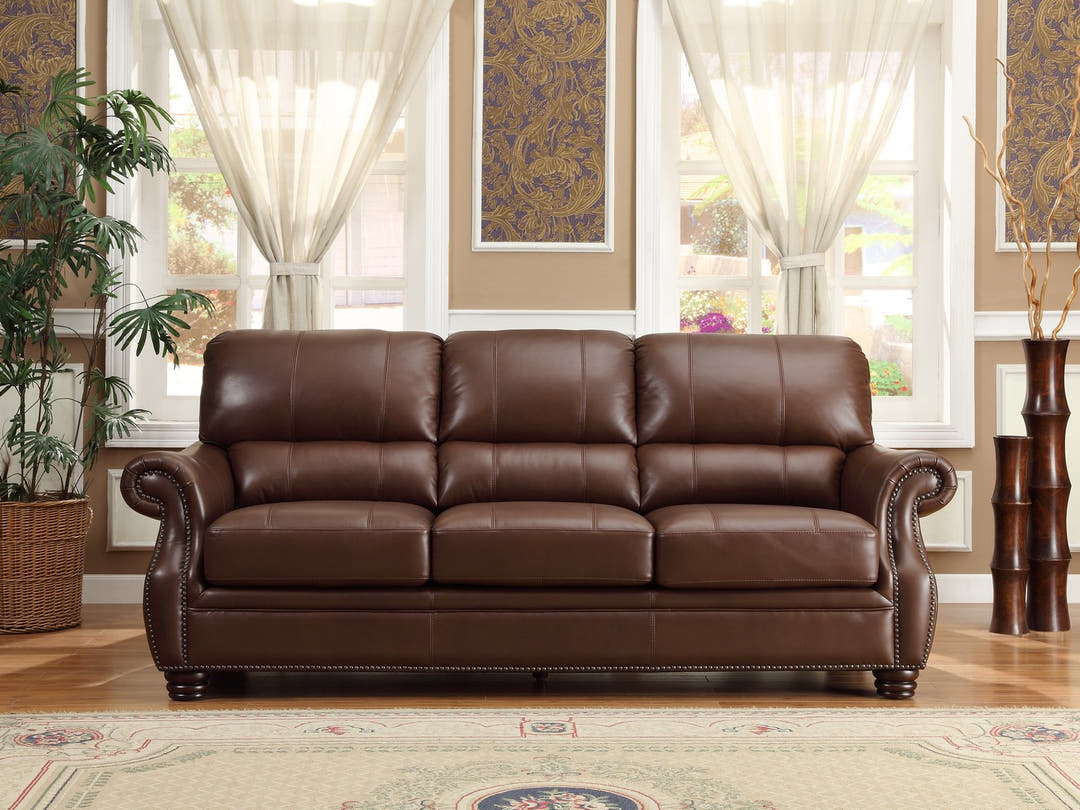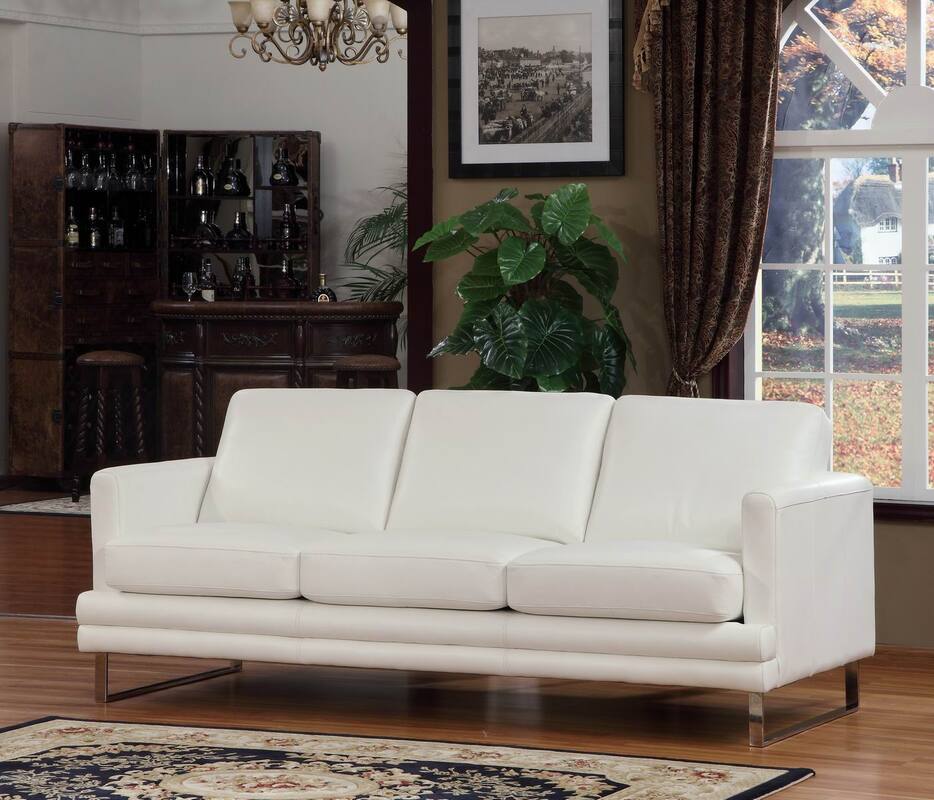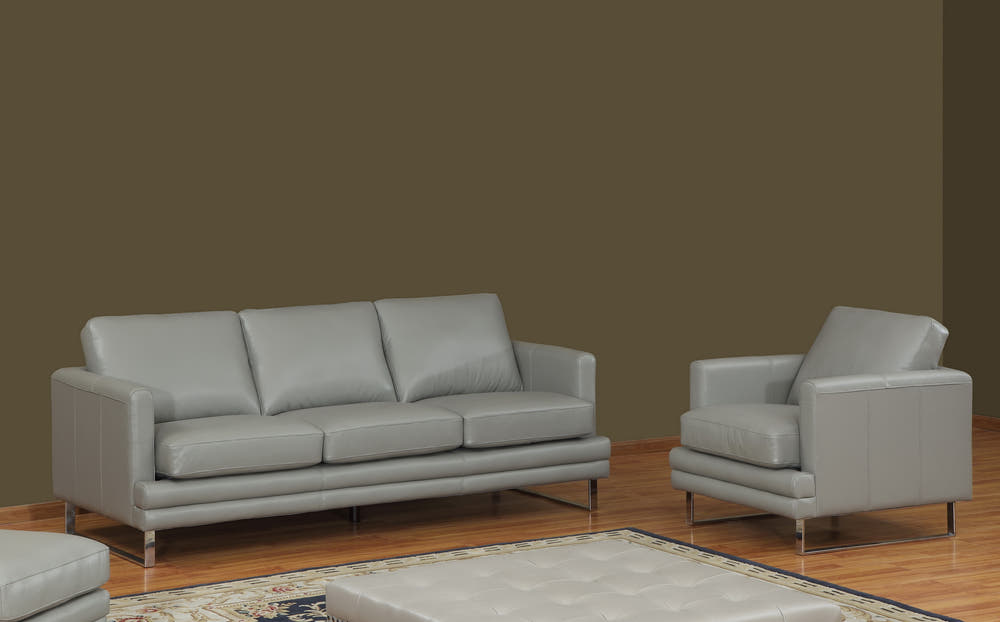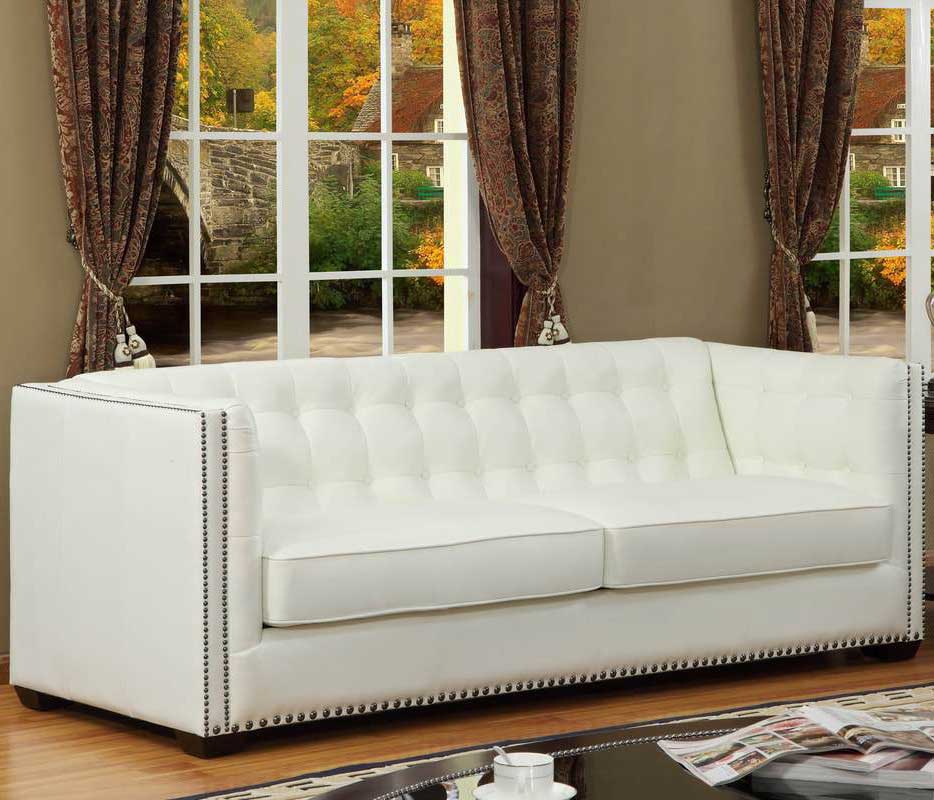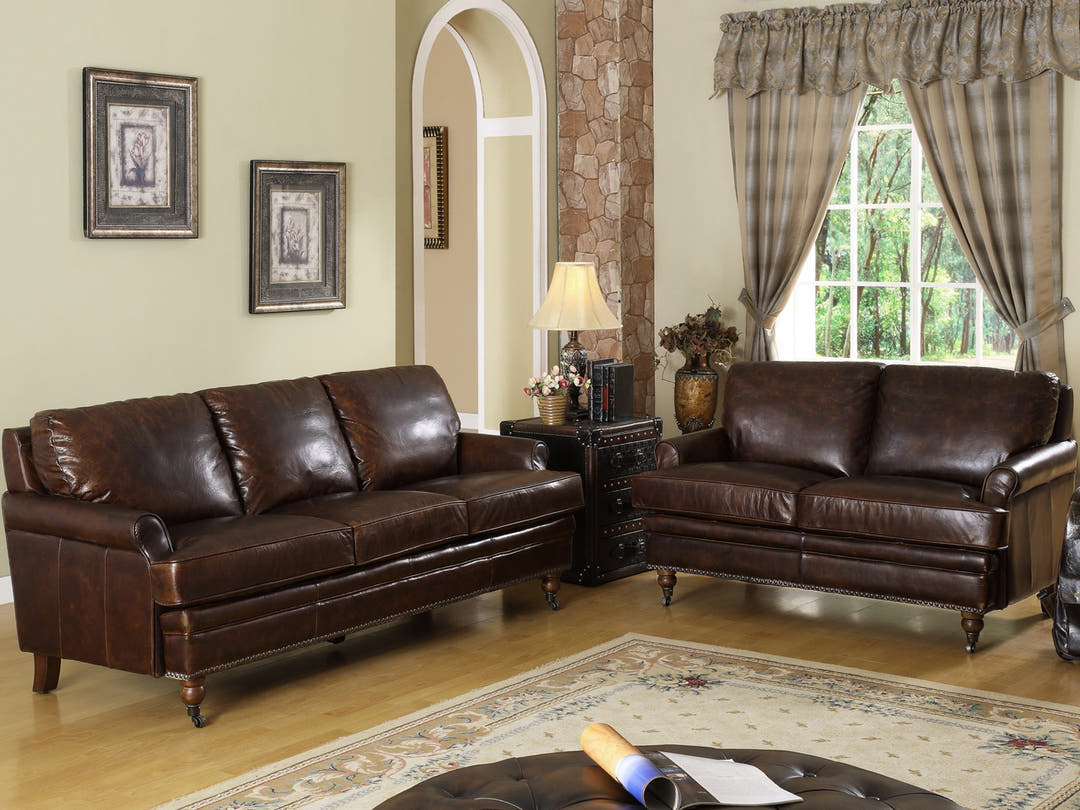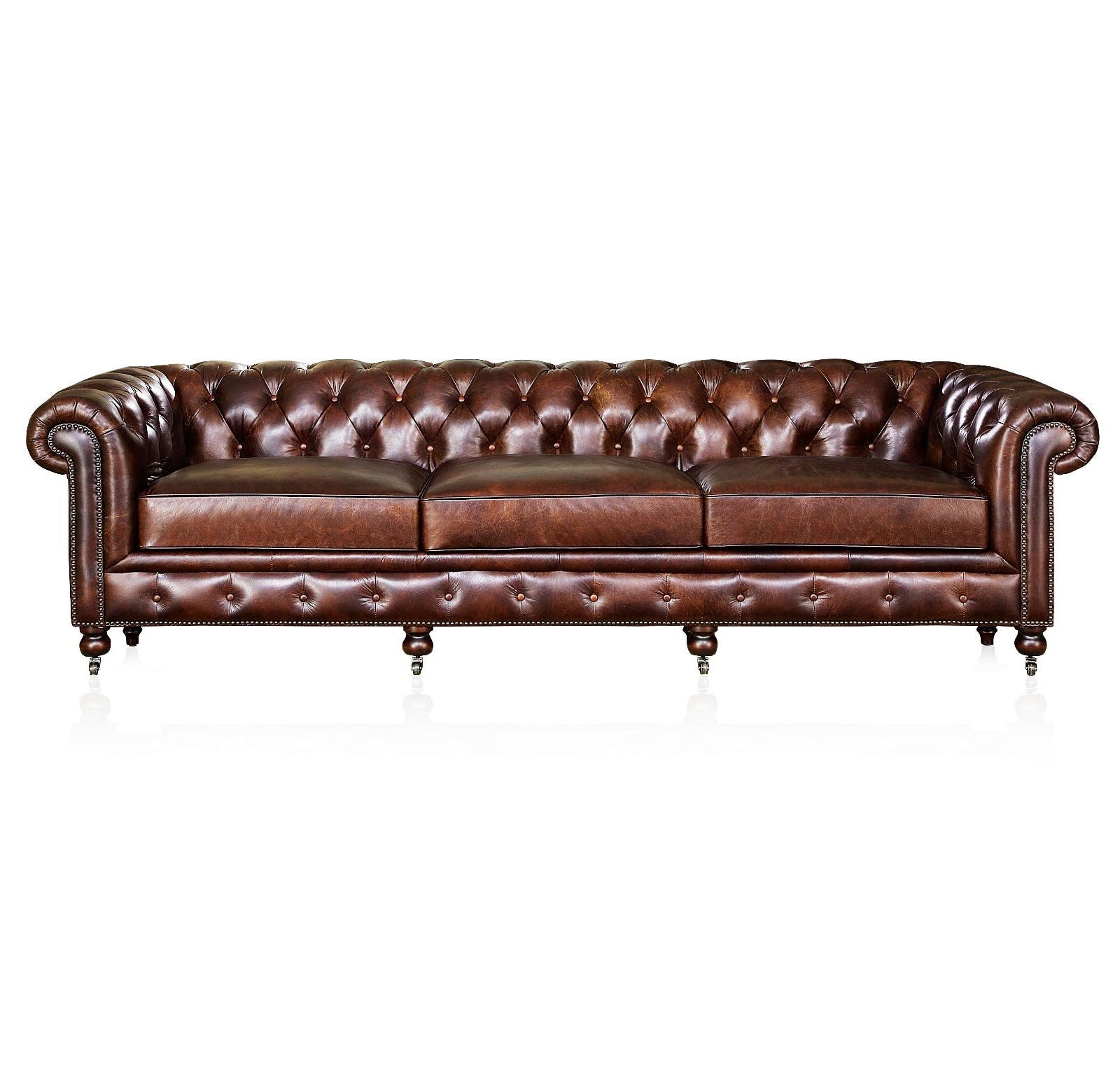The Best Genuine Leather Cleaner: It’s Not What You Think!

When it comes to maintaining your precious leather couch, choosing the right cleaner can be challenging. With so many products on the market, it’s easy to assume that popular brands found in supermarkets or DIY stores are the best options. However, many mass-market leather cleaners, like **Pledge Leather Cleaner** or commonly seen leather wipes, may not be as safe as you think. These products often contain **alcohol**, which can cause **destructive harm to natural leather** and should be avoided at all costs.
In this article, we’ll explore why these products might not be suitable for your genuine leather items, how to properly care for "full-grain leather". For those looking for more guidance, don’t hesitate to reach out to **Locus Habitat**, where we have over 20 years of leather care expertise, especially in tropical climates like Singapore!
Why Mass-Market Leather Cleaners Can Be Harmful
If you’ve ever visited a supermarket or DIY store, you’ve likely seen a variety of leather cleaning products like **Pledge Leather Cleaner** or leather wipes. These products are marketed as convenient solutions for cleaning and conditioning leather, but they often contain **alcohol** and other chemicals that can damage natural leather.
Alcohol and Its Effects on Leather
Leather wipes and sprays that contain alcohol might work well on **synthetic leather** or **embossed grain leather** (which has an artificial coating), but they can strip the natural oils from **full-grain leather**. This can cause the leather to dry out, lose its natural shine, and even crack over time. The alcohol content in these products can be too harsh, especially for high-quality leather that has been minimally treated.
The Right Way to Care for Full-Grain Leather
For those who own **full-grain leather** sofas or chairs, proper care is essential to keep them looking their best. Unlike synthetic leather, full-grain leather has a natural texture that requires a gentler approach to cleaning and maintenance.
1. Dusting with a Soft Brush or Dry Cloth
One of the best ways to keep your **full-grain leather** clean is by using a **soft brush** or **dry cloth** to gently remove dust and debris. This simple maintenance routine prevents dirt from building up in the pores of the leather without causing any abrasions. By doing this regularly, you can maintain the leather’s natural luster and ensure that it stays in great condition for years.
2. Cleaning Fluid Stains with Mild Soap
When spills happen—like a drop of tomato sauce or coffee—it's important to act quickly. For oil-based stains, you can use a **diluted kids’ hand wash**. Kids’ hand wash is typically gentler than regular soaps, making it safer for delicate leather surfaces. Mix a small amount with water, dip a soft cloth in the solution, and gently dab the stained area. Avoid scrubbing, as this can push the stain deeper into the leather. After cleaning, use a dry cloth to remove any excess moisture.
3. The Risk of Using Water on Leather
Many people wonder if water is safe to use on leather. While leather generally has some water-resistant properties, especially if it has been treated, using too much water can still cause damage. **Full aniline leather**, in particular, is more vulnerable to water stains because it is less treated. If you need to use water to clean your leather, make sure to use a **slightly damp cloth** and follow up with a dry cloth immediately. If water is left to dry on its own, it can leave **permanent water trails**, which are difficult to remove.
An Unexpected Solution: Carpet Stain Removers
For stubborn stains on leather, many people are surprised to learn that a **carpet stain remover** can sometimes be more effective than traditional leather cleaners. Carpet stain removers are designed to break down organic stains without leaving residue, making them suitable for tackling tough spots on leather.
If you decide to use a carpet stain remover, make sure to **test it on an inconspicuous area** of the leather first. This ensures that it won’t alter the leather’s color or finish. After testing, apply a small amount to a soft cloth and gently dab the stain. Never spray the product directly onto the leather, as this can cause oversaturation and potential damage.
Why Conditioning Leather Is Crucial After Cleaning
Whether you’re using a specialized leather cleaner or a carpet stain remover, **conditioning** the leather afterward is a crucial step. Cleaning can strip away some of the natural oils that keep leather soft and supple. Applying a high-quality **leather conditioner** after cleaning helps restore moisture, keeping the leather from drying out and cracking.
Choose a conditioner that is specifically designed for **full-grain leather**. Such conditioners are usually free from waxes and silicones, allowing the leather to breathe naturally. Apply the conditioner using a soft cloth, gently rubbing it in with circular motions. This helps the conditioner to absorb evenly, leaving your leather looking refreshed and well-maintained.
Common Mistakes to Avoid When Cleaning Leather
1. **Using Products with Alcohol**: As mentioned, many mass-market products like **Pledge Leather Cleaner** and leather wipes contain alcohol, which can be damaging to natural leather. Avoid these products to preserve your leather’s quality.
2. **Over-Wetting the Leather**: Using too much water can leave marks, especially on full aniline leather. Always use a damp cloth rather than a soaked one, and dry the area immediately.
3. **Neglecting Conditioning**: Skipping the conditioning step can result in dry, brittle leather. After cleaning, always apply a leather conditioner to keep the leather hydrated.
4. **Applying Cleaners Directly to Leather**: Always apply any cleaner to a cloth first, then gently dab the leather. This prevents over-saturation and minimizes the risk of damage.
Trust the Experts: Contact Locus Habitat for Professional Leather Care
With so many pitfalls when it comes to cleaning leather, it’s no wonder that many people are unsure about the best methods. If you have questions or need assistance with maintaining your leather sofa or other leather products, don’t be shy to contact **Locus Habitat**. With over **20 years of experience** in leather care, particularly in the humid and tropical climate of **Singapore**, we understand the unique challenges of preserving leather’s beauty and durability. We offer expert advice and services tailored to your specific needs, ensuring that your leather remains in perfect condition.
Conclusion: Choosing the Right Leather Cleaner
When it comes to maintaining the beauty of **full-grain leather**, sometimes the best cleaner is not the one you’d expect. Mass-market products like **Pledge Leather Cleaner** may seem convenient, but their alcohol content can damage natural leather. Instead, opt for gentle, proven methods like soft brushing, diluted mild soap, and professional conditioning.
For those stubborn stains, consider using a **carpet stain remover**—just be sure to test it first. And for those who want to ensure the very best care for their leather products, **Locus Habitat** is here to provide expert advice and support. With the right care routine, your leather sofa can remain a stunning centerpiece in your home for years to come.
In this article, we’ll explore why these products might not be suitable for your genuine leather items, how to properly care for "full-grain leather". For those looking for more guidance, don’t hesitate to reach out to **Locus Habitat**, where we have over 20 years of leather care expertise, especially in tropical climates like Singapore!
Why Mass-Market Leather Cleaners Can Be Harmful
If you’ve ever visited a supermarket or DIY store, you’ve likely seen a variety of leather cleaning products like **Pledge Leather Cleaner** or leather wipes. These products are marketed as convenient solutions for cleaning and conditioning leather, but they often contain **alcohol** and other chemicals that can damage natural leather.
Alcohol and Its Effects on Leather
Leather wipes and sprays that contain alcohol might work well on **synthetic leather** or **embossed grain leather** (which has an artificial coating), but they can strip the natural oils from **full-grain leather**. This can cause the leather to dry out, lose its natural shine, and even crack over time. The alcohol content in these products can be too harsh, especially for high-quality leather that has been minimally treated.
The Right Way to Care for Full-Grain Leather
For those who own **full-grain leather** sofas or chairs, proper care is essential to keep them looking their best. Unlike synthetic leather, full-grain leather has a natural texture that requires a gentler approach to cleaning and maintenance.
1. Dusting with a Soft Brush or Dry Cloth
One of the best ways to keep your **full-grain leather** clean is by using a **soft brush** or **dry cloth** to gently remove dust and debris. This simple maintenance routine prevents dirt from building up in the pores of the leather without causing any abrasions. By doing this regularly, you can maintain the leather’s natural luster and ensure that it stays in great condition for years.
2. Cleaning Fluid Stains with Mild Soap
When spills happen—like a drop of tomato sauce or coffee—it's important to act quickly. For oil-based stains, you can use a **diluted kids’ hand wash**. Kids’ hand wash is typically gentler than regular soaps, making it safer for delicate leather surfaces. Mix a small amount with water, dip a soft cloth in the solution, and gently dab the stained area. Avoid scrubbing, as this can push the stain deeper into the leather. After cleaning, use a dry cloth to remove any excess moisture.
3. The Risk of Using Water on Leather
Many people wonder if water is safe to use on leather. While leather generally has some water-resistant properties, especially if it has been treated, using too much water can still cause damage. **Full aniline leather**, in particular, is more vulnerable to water stains because it is less treated. If you need to use water to clean your leather, make sure to use a **slightly damp cloth** and follow up with a dry cloth immediately. If water is left to dry on its own, it can leave **permanent water trails**, which are difficult to remove.
An Unexpected Solution: Carpet Stain Removers
For stubborn stains on leather, many people are surprised to learn that a **carpet stain remover** can sometimes be more effective than traditional leather cleaners. Carpet stain removers are designed to break down organic stains without leaving residue, making them suitable for tackling tough spots on leather.
If you decide to use a carpet stain remover, make sure to **test it on an inconspicuous area** of the leather first. This ensures that it won’t alter the leather’s color or finish. After testing, apply a small amount to a soft cloth and gently dab the stain. Never spray the product directly onto the leather, as this can cause oversaturation and potential damage.
Why Conditioning Leather Is Crucial After Cleaning
Whether you’re using a specialized leather cleaner or a carpet stain remover, **conditioning** the leather afterward is a crucial step. Cleaning can strip away some of the natural oils that keep leather soft and supple. Applying a high-quality **leather conditioner** after cleaning helps restore moisture, keeping the leather from drying out and cracking.
Choose a conditioner that is specifically designed for **full-grain leather**. Such conditioners are usually free from waxes and silicones, allowing the leather to breathe naturally. Apply the conditioner using a soft cloth, gently rubbing it in with circular motions. This helps the conditioner to absorb evenly, leaving your leather looking refreshed and well-maintained.
Common Mistakes to Avoid When Cleaning Leather
1. **Using Products with Alcohol**: As mentioned, many mass-market products like **Pledge Leather Cleaner** and leather wipes contain alcohol, which can be damaging to natural leather. Avoid these products to preserve your leather’s quality.
2. **Over-Wetting the Leather**: Using too much water can leave marks, especially on full aniline leather. Always use a damp cloth rather than a soaked one, and dry the area immediately.
3. **Neglecting Conditioning**: Skipping the conditioning step can result in dry, brittle leather. After cleaning, always apply a leather conditioner to keep the leather hydrated.
4. **Applying Cleaners Directly to Leather**: Always apply any cleaner to a cloth first, then gently dab the leather. This prevents over-saturation and minimizes the risk of damage.
Trust the Experts: Contact Locus Habitat for Professional Leather Care
With so many pitfalls when it comes to cleaning leather, it’s no wonder that many people are unsure about the best methods. If you have questions or need assistance with maintaining your leather sofa or other leather products, don’t be shy to contact **Locus Habitat**. With over **20 years of experience** in leather care, particularly in the humid and tropical climate of **Singapore**, we understand the unique challenges of preserving leather’s beauty and durability. We offer expert advice and services tailored to your specific needs, ensuring that your leather remains in perfect condition.
Conclusion: Choosing the Right Leather Cleaner
When it comes to maintaining the beauty of **full-grain leather**, sometimes the best cleaner is not the one you’d expect. Mass-market products like **Pledge Leather Cleaner** may seem convenient, but their alcohol content can damage natural leather. Instead, opt for gentle, proven methods like soft brushing, diluted mild soap, and professional conditioning.
For those stubborn stains, consider using a **carpet stain remover**—just be sure to test it first. And for those who want to ensure the very best care for their leather products, **Locus Habitat** is here to provide expert advice and support. With the right care routine, your leather sofa can remain a stunning centerpiece in your home for years to come.






